Now franchising in UK & Ireland!
Now franchising in UK & Ireland!
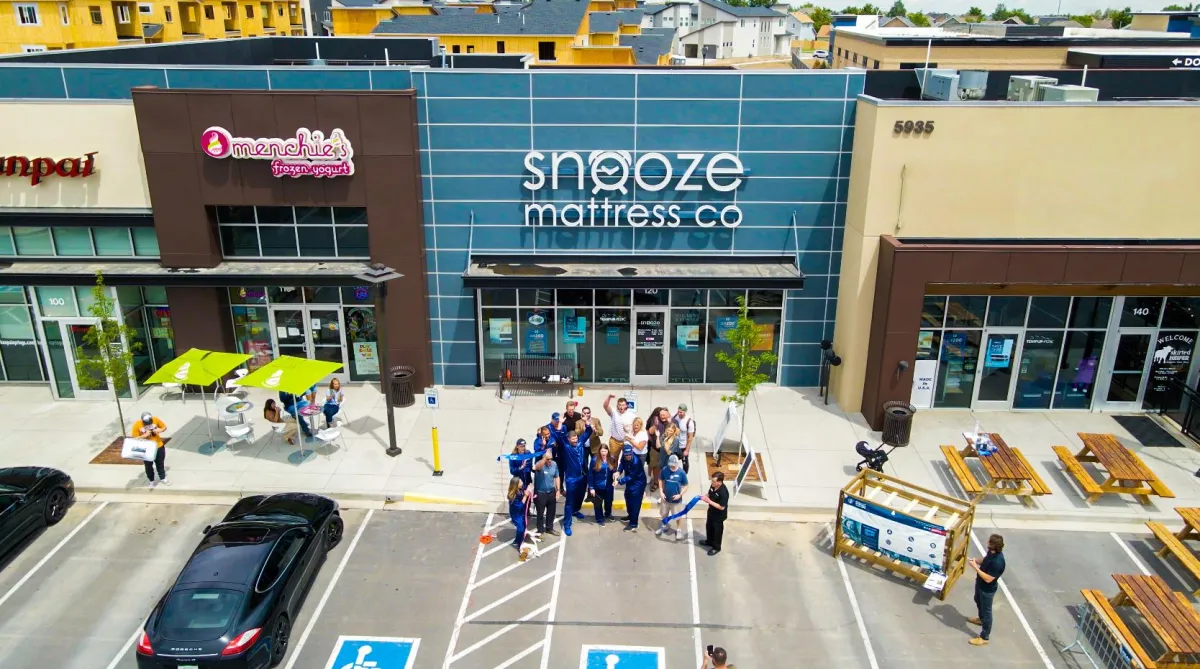
Become a Snooze Mattress franchise owner today!
**This website is not for the sale of mattresses. If you are looking for mattresses or employment, please head to Snoozemattresscompany.com
We're Waking up a tired industry.
Start your journey with Snooze today!
Make a positive impact on the health and well-being of your community; all while taking hold of your future, putting your money to work, and making freedom your reality!
“You can trust this guy (Matt Smith, CEO), he is amazing, amazing human being, great family man, and a great business man”
-Grant Cardone, Business Mogul, Founder of the 10X Movement
What's Holding You Back From Your Entrepreneurial Dreams?
We know that starting your own business can seem daunting, but with Snooze we’re with you every step of the way.
At Snooze Mattress Company, we're here to give you a stress-free opportunity to take control of your career and make a positive difference in the health of your community!
Step into a booming $74 billion industry with a franchise model built for momentum. At Snooze Mattress Company, we’ve simplified the path to business ownership offering a lean operational setup, low overhead, and powerful margins that put your profits where they belong: in your hands.
With us, you’re never on your own. From grand opening to grand growth, our seasoned team is by your side with expert training, proven marketing strategies, streamlined systems, and hands-on support that fuels customer traffic and long-term success.
This isn’t just another franchise. It’s your chance to own a purpose-driven business that helps people sleep better and live better. Your future’s wide awake
and it starts with Snooze.

Only Requires 2 Employees
High Profit Margins
Everyone in your city is a customer!
$50B Global Market
Improve the health of others!
Localized Marketing
Low Volume for Success
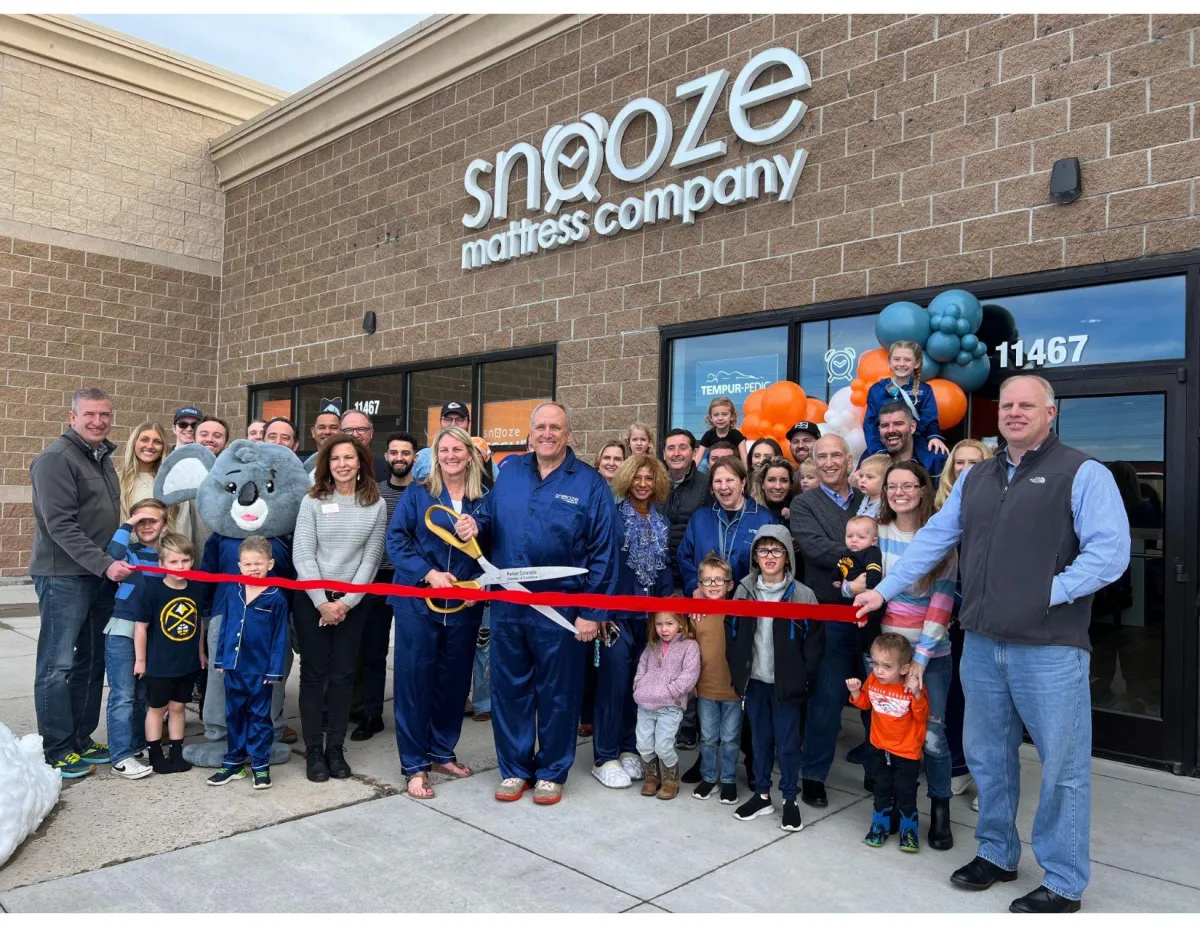
A team with over a 40yrs. of mattress expertise
Support in Marketing, Operations, Logistics, Design and Sales
Online and in-person training
Dynamic CEO who went from Zero to $5.5M in 90 days with Grant Cardone

Elite Retailer of Tempur-Pedic
Sealy
Stearns and Foster
Nectar
DreamFit
Malouf
BedGear
And Many More
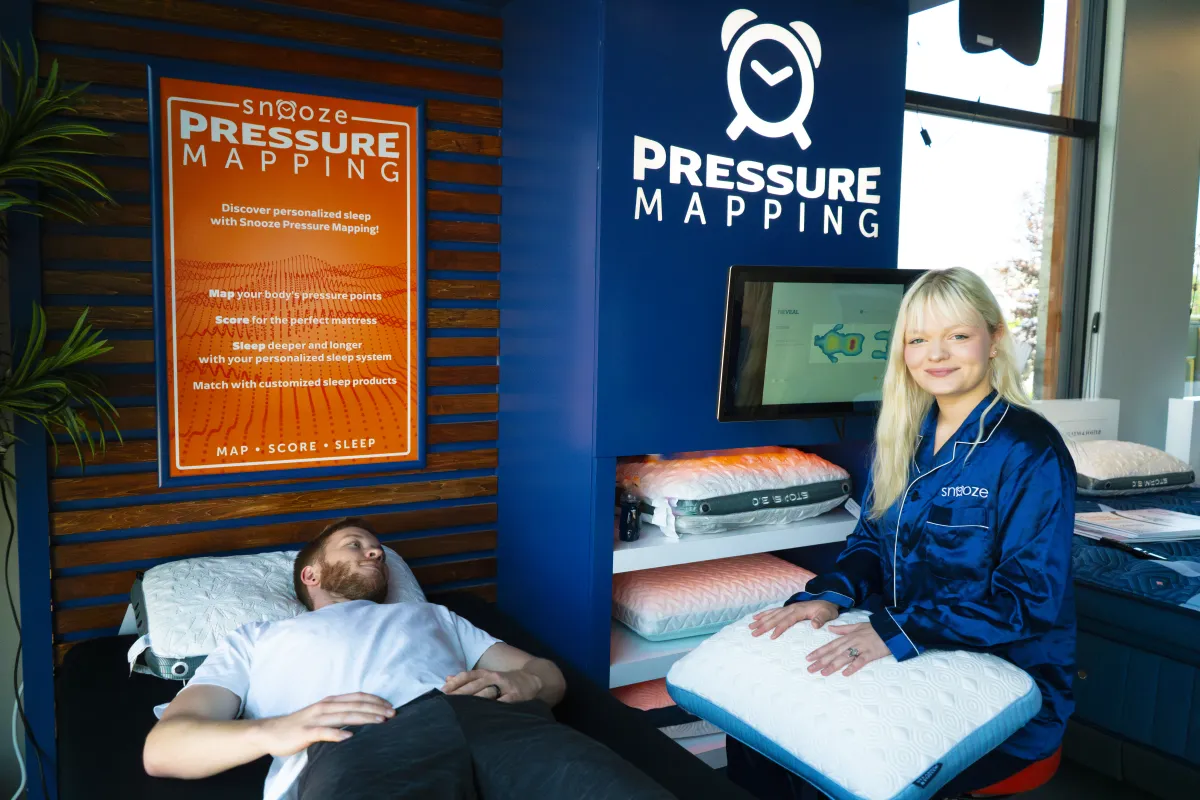
Snooze Dream Mapping Technology
Shows Customers their pressure points and pinpoints the best sleep solution
Technology trusted by the Mayo clinic

Business Model For Success
Only Requires 2 Employees
High Profit Margins
Everyone in your city is a customer!
$50B Global Market
Improve the health of others!
Localized Marketing
Low Volume for Success
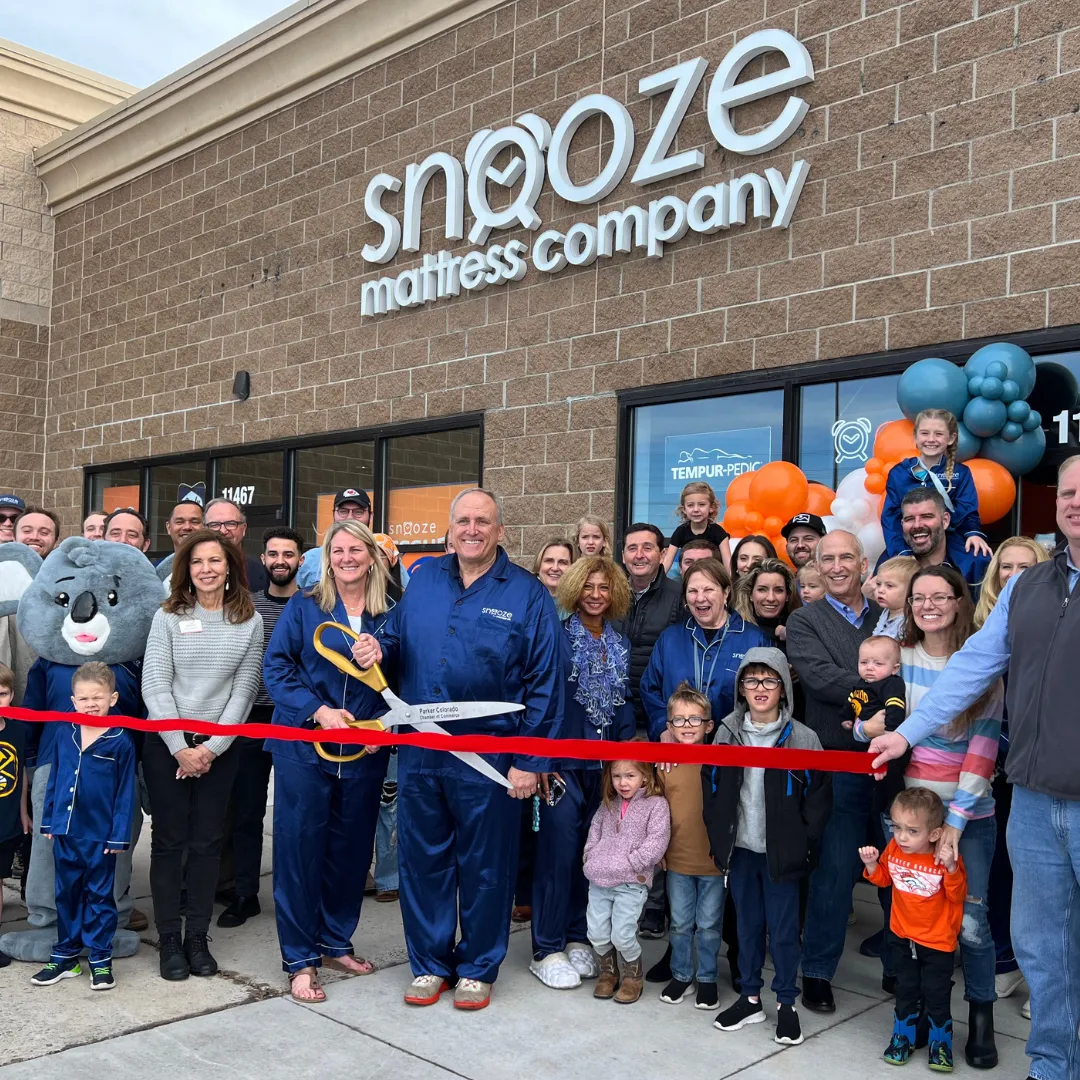
Supportive Franchise System
A team with over a 40yrs. of mattress expertise
Support in Marketing, Operations, Logistics, Design and Sales
Online and in-person training
Dynamic CEO who went from Zero to $5.5M in 90 days with Grant Cardone

Strategic Partnerships
Elite Retailer of Tempur-Pedic
Sealy
Stearns and Foster
Nectar
DreamFit
Malouf
BedGear
And Many More

Successful Sales Process
Snooze Dream Mapping Technology
Shows Customers their pressure points and pinpoints the best sleep solution
Technology trusted by the Mayo clinic
How To Get Started
1
Step 1: Click any one of our booking buttons and fill out the form so we collect your information get in touch with you for your 20min info call.
2
Step 2: Schedule your meeting. After filling out the contact form, you'll be redirected to a calendar to schedule your 20-minute over-the-phone meeting with our development team.
3
Step 3: Meet with your Snooze representative for your 20-minute phone call to see if this will be a good fit for both of us.
That's it!
If we decide that you'll be a good fit with Snooze Mattress Company, our team will help you to become a franchisee within 6 to 8 weeks!
Book an Appointment
No Obligations. No Pressure. No applications on the first meeting.
At Snooze Mattress Company, we are on a mission to help the world sleep deep and dream big. We understand the importance of deep restorative sleep in achieving personal and professional success. That's why we offer a proven franchise model that not only allows you to become a successful business owner but also help people live healthier and achieve the quality sleep they deserve.
See where it started and find out first hand from current franchisees how Snooze impacted their lives.
The Full Story of Grant Cardone and Matt Smith!
Testimonial with Nathan Phillips | Franchising with Snooze Mattress Co.
Keith Chambers Franchisee Story!
Jim Mince Franchisee Story!
Testimonial with Mike Baue | Franchising with Snooze Mattress Company
Frequently Asked Questions
What are the qualifications to become a Snooze Franchisee?
In order to qualify to become a Snooze Mattress Company Franchisee you will need $50,000 Liquid Cash, and Minimum Net Worth $250,000.
What if I do not qualify but I want to become a Snooze Franchisee?
We have a pool of investors we can connect you with in order to find a business partner whom is also interested in Snooze Mattress Company. Just put your information in and let our consultant know your situation and they will guide you through the process.
Where can I book my 20min phone call to become a Snooze Franchisee?
You can click on any of the links throughout our website to schedule your 20min phone call!
Learn more about Snooze through our Stories!
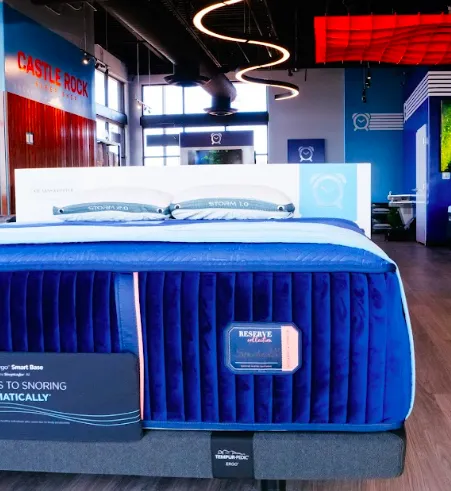
Understanding the Initial Investment for a Franchise: Why It's Required and What It Entails
When considering a franchise opportunity, one of the essential factors to evaluate is the initial investment required. Franchisors typically outline a specific amount that potential franchisees need to invest to join their franchise system. In this blog post, we will explore the concept of the initial investment for a franchise, why franchisors require it, and what it entails for aspiring franchisees.
Defining the Initial Investment: The initial investment refers to the upfront capital required to start a franchise business. It encompasses various costs associated with launching and operating the franchise, typically detailed in the franchise disclosure documents provided by the franchisor. The initial investment amount varies widely across different franchise opportunities, depending on factors such as industry, brand recognition, location, and business model complexity.
Why Franchisors Require an Initial Investment: Franchisors require an initial investment for several reasons:
a) Brand Support and Infrastructure: Franchisors have invested substantial time, effort, and resources in establishing and building their brand. The initial investment helps cover the costs associated with providing ongoing support and infrastructure to franchisees, such as training programs, operational manuals, marketing materials, and access to proprietary technology or systems. By collecting an initial investment, franchisors can continue to maintain and enhance the franchise system's quality and support structure
b) Franchisee Training and Assistance: Franchisors provide comprehensive training and guidance to franchisees, ensuring they are equipped with the necessary knowledge and skills to operate the business successfully. The initial investment contributes to the costs associated with training programs, including trainers' fees, training materials, and facility expenses. It helps cover the expenses incurred by the franchisor in sharing their expertise and ensuring franchisees are adequately prepared to launch their businesses.
c) Brand Development and Marketing: A portion of the initial investment is often allocated to brand development and marketing efforts. Franchisors invest in national or regional advertising campaigns, digital marketing strategies, and brand-building initiatives to increase brand recognition and attract customers. The initial investment contributes to these marketing activities, ensuring that franchisees benefit from the collective marketing efforts that drive brand awareness and customer acquisition.
Components of the Initial Investment: The initial investment for a franchise typically includes the following components:
a) Franchise Fee: The franchise fee is an upfront payment made to the franchisor, granting the franchisee the rights to use the brand name, trademarks, and operating systems. The fee varies among franchises and often reflects the value of the brand and the support provided by the franchisor.
b) Equipment and Inventory: Franchisees are responsible for purchasing equipment, inventory, and supplies necessary for operating the franchise business. This may include items such as kitchen equipment, furniture, fixtures, signage, initial inventory stock, and computer systems.
c) Real Estate and Leasehold Improvements: If the franchise requires a physical location, the initial investment may include costs associated with acquiring or leasing real estate. This encompasses leasehold improvements, renovations, and obtaining necessary permits or licenses.
d) Working Capital: Franchisees need to allocate funds for initial operating expenses and working capital to cover ongoing costs until the business becomes profitable. This includes rent, utilities, payroll, marketing expenses, and other day-to-day operational expenses.
The initial investment for a franchise is a crucial consideration for potential franchisees. It covers the costs associated with brand support, training, marketing, and infrastructure provided by the franchisor. By understanding the components and purpose of the initial investment, aspiring franchisees can make informed decisions about the financial commitment required to enter the franchise system. It is essential to carefully review the franchise disclosure documents and conduct thorough due diligence to ensure that the initial investment aligns with your budget, business goals, and the potential for long-term success in the franchise industry.

Understanding the Initial Investment for a Franchise: Why It's Required and What It Entails
When considering a franchise opportunity, one of the essential factors to evaluate is the initial investment required. Franchisors typically outline a specific amount that potential franchisees need to invest to join their franchise system. In this blog post, we will explore the concept of the initial investment for a franchise, why franchisors require it, and what it entails for aspiring franchisees.
Defining the Initial Investment: The initial investment refers to the upfront capital required to start a franchise business. It encompasses various costs associated with launching and operating the franchise, typically detailed in the franchise disclosure documents provided by the franchisor. The initial investment amount varies widely across different franchise opportunities, depending on factors such as industry, brand recognition, location, and business model complexity.
Why Franchisors Require an Initial Investment: Franchisors require an initial investment for several reasons:
a) Brand Support and Infrastructure: Franchisors have invested substantial time, effort, and resources in establishing and building their brand. The initial investment helps cover the costs associated with providing ongoing support and infrastructure to franchisees, such as training programs, operational manuals, marketing materials, and access to proprietary technology or systems. By collecting an initial investment, franchisors can continue to maintain and enhance the franchise system's quality and support structure
b) Franchisee Training and Assistance: Franchisors provide comprehensive training and guidance to franchisees, ensuring they are equipped with the necessary knowledge and skills to operate the business successfully. The initial investment contributes to the costs associated with training programs, including trainers' fees, training materials, and facility expenses. It helps cover the expenses incurred by the franchisor in sharing their expertise and ensuring franchisees are adequately prepared to launch their businesses.
c) Brand Development and Marketing: A portion of the initial investment is often allocated to brand development and marketing efforts. Franchisors invest in national or regional advertising campaigns, digital marketing strategies, and brand-building initiatives to increase brand recognition and attract customers. The initial investment contributes to these marketing activities, ensuring that franchisees benefit from the collective marketing efforts that drive brand awareness and customer acquisition.
Components of the Initial Investment: The initial investment for a franchise typically includes the following components:
a) Franchise Fee: The franchise fee is an upfront payment made to the franchisor, granting the franchisee the rights to use the brand name, trademarks, and operating systems. The fee varies among franchises and often reflects the value of the brand and the support provided by the franchisor.
b) Equipment and Inventory: Franchisees are responsible for purchasing equipment, inventory, and supplies necessary for operating the franchise business. This may include items such as kitchen equipment, furniture, fixtures, signage, initial inventory stock, and computer systems.
c) Real Estate and Leasehold Improvements: If the franchise requires a physical location, the initial investment may include costs associated with acquiring or leasing real estate. This encompasses leasehold improvements, renovations, and obtaining necessary permits or licenses.
d) Working Capital: Franchisees need to allocate funds for initial operating expenses and working capital to cover ongoing costs until the business becomes profitable. This includes rent, utilities, payroll, marketing expenses, and other day-to-day operational expenses.
The initial investment for a franchise is a crucial consideration for potential franchisees. It covers the costs associated with brand support, training, marketing, and infrastructure provided by the franchisor. By understanding the components and purpose of the initial investment, aspiring franchisees can make informed decisions about the financial commitment required to enter the franchise system. It is essential to carefully review the franchise disclosure documents and conduct thorough due diligence to ensure that the initial investment aligns with your budget, business goals, and the potential for long-term success in the franchise industry.
**This website is not for the sale of mattresses. If you are looking for mattresses or employment, please head to Snoozemattresscompany.com


